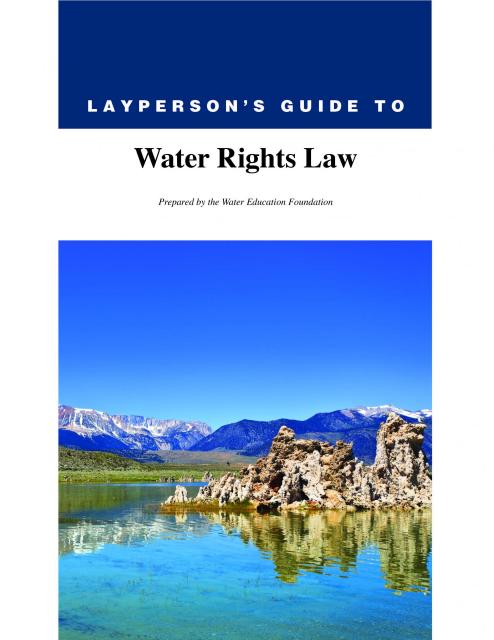Appropriative Rights
California law allows rivers, streams, lakes and other surface water to be diverted at one point and appropriated (used) beneficially at a separate point.
This “appropriative right” contrasts with a “riparian right,” which is based on ownership of property adjacent to surface water.
An appropriative right to use water exists regardless of the relationship between land and water. This right is based on physical control and beneficial use of the water and, if initiated after 1914, on a permit or license.
Appropriative rights may attach to surface water unclaimed by holders of superior riparian rights. They depend upon continued use and may be sold or transferred. Unlike riparian rights, long-term storage of water is considered an acceptable exercise of an appropriative right.
History
Appropriative rights date back to California’s Gold Rush, when miners diverted water from rivers and streams for hydraulic or placer mining. To stake their water claims, miners followed a practice similar to the one they used for staking their land claims for gold—they posted a notice of their claim to the water at the point of diversion.
Mining communities recognized and protected the rights of “posted” appropriators, and the practice of appropriating rights to water on public lands as did the state Supreme Court in the 1855 landmark case of Irwin v. Phillips.
In 1914, the California Water Commission Act formalized the appropriation system, now administered by the State Water Resources Control Board. Diverting surface water requires a permit from the water board. Applicants must specify where, how and when the water will be diverted and used.
Order of Priority
The date of the first appropriation and the size of the completed diversion project are critical to establishing an appropriator’s seniority on the stream and the permitted volume of water use.
When there is not enough water in the stream to satisfy all claims, the most recent claim is the first to have its diversion curtailed. Appropriators with superior (generally older) claims are the last to be denied water. If the water shortage is extreme, even the most senior appropriators must give way to streamside property owners holding riparian rights to the water source. [See also Groundwater Law.]
Updated June 2024











